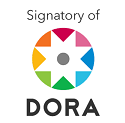Evaluation of the world class maintenance standard with risk approach
Abstract
The identification of improvement actions to mitigate business risks has become an increasingly important area of study. This study presents a procedure aimed at defining improvement actions for the characteristic elements of world class maintenance in a tourist village, based on the risk management philosophy. Through an exhaustive review of the literature, the generalities of world class maintenance and its interrelation with risk management are studied in depth. The practical application of the proposal, covering all the elements identified as characteristic of world class maintenance in the entity under study, allowed defining the necessary preventive actions to mitigate the risks and effects associated to each failure mode, assigning responsible persons and establishing the frequency of execution of such actions.
Downloads
References
Attia, A. M. (2025). Integrated risk management and maintenance planning in Oil and Gas Supply Chain operations under market uncertainty. Computers & Chemical Engineering, 192, 108879. https://doi.org/10.1016/j.compchemeng.2024.108879
Barraza de la Paz, J. V., Rodríguez-Picón, L. A., Morales-Rocha, V., y Torres-Argüelles, S. V. (2023). A Systematic Review of Risk Management Methodologies for Complex Organizations in Industry 4.0 and 5.0. Systems, 11(5), 1-19. https://doi.org/10.3390/systems11050218
da Costa, L. Q. C., y Cavalcante, C. A. V. (2022). A review on the study of maintenance effectiveness. Pesquisa Operacional, 42(1), 1-17. https://doi.org/10.1590/0101-7438.2022.042nspe1.00263613
de Souza Borges, L. A. (2021). Qualidade na prestação de serviço em manutenção industrial na busca pela WCM (World Class Maintenance): estudo em duas empresas de auto peças. [Título profesional, Instituto Federal de Educação, Ciência e Tecnologia do Rio Grande do Sul – IFRS Campus Farroupilha, Brasil]. https://n9.cl/sxpp6
Dinis, D. (2025). Maintenance Management: A Review on Problems and Solutions. Procedia Computer Science, 253, 3069-3077. https://doi.org/10.1016/j.procs.2025.02.031
Efe, A. (2023). A comparison of key risk management frameworks: COSO-ERM, NIST RMF, ISO 31.000, COBIT. Denetim Ve Güvence Hizmetleri Dergisi, 3(2), 185-205. http://orcid.org/0000- 0002-2691-7517
Hunziker, S. (2021). Enterprise Risk Management. Modern Approaches to Balancing Risk and Reward. (2a Ed). Springer Gabler. https://doi.org/10.1007/978-3-658-33523-6
Jaber, T. A., y Shah, S. M. (2024). Enterprise risk management literature: emerging themes and future directions. Journal of Accounting & Organizational Change, 20(1), 84-111. https://doi.org/10.1108/JAOC-07-2022-0106
Kumar, C. R., Mishra, M. K., y Mishra, R. K. (2023). Risk Management in Industry 4.0 Maintenance: Identifying and Addressing Hazards. International Research Journal of Engineering and Technology (IRJET), 10(7), 1029-1041.
López Torres, G. C. (2023). The impact of SMEs’ sustainability on competitiveness. Measuring Business Excellence, 27(1), 107-120. https://doi.org/10.1108/MBE-12-2021-0144
Mishra, R. P., Kodali, R. B., Gupta, G., y Mundr, N. (2015). Development of a Framework for Implementation of World-class Maintenance Systems Using Interpretive Structural Modeling Approach. 12th Global Conference on Sustainable Manufacturing. Procedia CIRP, 26, 424-429. https://doi.org/10.1016/j.procir.2014.07.174
Mohd Dahari, N. D., Mohammad Ali, I., Khalil, N., y Abdul Wahab, S. N. (2024). Perceived Risk-Based Maintenance Management (PRBMM) for public schools: a systematic literature review. Malaysian Journal of Sustainable Environment, 11(3), 61-80. https://doi.org/10.24191/myse.v11i3.3910
Nobanee, H., Al Hamadi, F. Y., Abdulaziz, F. A., Abukarsh, L. S., Alqahtani, A. F., AlSubaey, S. K., Alqahtani, S. M., y Almansoori, H. A. (2021). A bibliometric analysis of sustainability and risk management. Sustainability, 13(6), 3277. https://doi.org/10.3390/su13063277
Nocco, B. W., y Stulz, R. M. (2022). Enterprise risk management: theory and practice. Journal of Applied Corporate Finance, 34(1), 81-94. https://doi.org/10.1111/jacf.12490
Ogutu, H., Adol, G. F. C., Bujdosó, Z., Andrea, B., Fekete Farkas, M., y Dávid, L. D. (2023). Theoretical nexus of knowledge management and tourism business enterprise competitiveness: an integrated overview. Sustainability, 15(3), 1948. https://doi.org/10.3390/su15031948
Pinciroli, L., Baraldi, P., y Zio, E. (2023). Maintenance optimization in industry 4.0. Reliability Engineering & System Safety, 234, 109204, 1-19. https://doi.org/10.1016/j.ress.2023.109204
Roda, I., y Macchi, M. (2021). Maintenance concepts evolution: a comparative review towards advanced maintenance conceptualization. Computers in Industry, 133, 103531. https://doi.org/10.1016/j.compind.2021.103531
Saeidi, P., Saeidi, S. P., Gutierrez, L., Streimikiene, D., Alrasheedi, M., Saeidi, S. P., y Mardani, A. (2021) The influence of enterprise risk management on firm performance with the moderating effect of intellectual capital dimensions. Economic Research-Ekonomska Istraživanja, 34(1), 122-151. https://doi.org/10.1080/1331677X.2020.1776140
Shaheen, B. W., y Németh, I. (2022). Integration of Maintenance Management System Functions with Industry 4.0 Technologies and Features. A Review. Processes, 10(11), 2173. https://doi.org/10.3390/pr10112173
Shrivastava, V. K., Balasubramanian, J., Katyal, A., Yadav, A., y Yogananthan, S. (2024). Understanding the significance of risk management in enterprise management dynamics. Multidisciplinary Reviews, 6, 2023ss093. https://doi.org/10.31893/multirev.2023ss093
Soesatijono, S., y Darsin, M. (2021). Literature studies on maintenance management. Journal of Energy, Mechanical, Material, and Manufacturing Engineering, 6(1), 67-74.
Copyright (c) 2025 Gervys José Rubio-Arechavaleta, Aramis Alfonso-Llanes

This work is licensed under a Creative Commons Attribution-NonCommercial-ShareAlike 4.0 International License.
LICENCIA DE CONTENIDO
Creative Commons
Atribución-NoComercial-CompartirIgual 4.0 Internacional (CC BY-NC-SA 4.0)
Política propuesta para revistas que ofrecen acceso abierto
Aquellos autores/as que tengan publicaciones con esta revista, aceptan los términos siguientes:
Usted es libre de:
Compartir — copiar y redistribuir el material en cualquier medio o formato
Adaptar — remezclar, transformar y construir a partir del material
La licenciante no puede revocar estas libertades en tanto usted siga los términos de la licencia
Bajo los siguientes términos:
Atribución — Usted debe dar crédito de manera adecuada, brindar un enlace a la licencia, e indicar si se han realizado cambios. Puede hacerlo en cualquier forma razonable, pero no de forma tal que sugiera que usted o su uso tienen el apoyo de la licenciante.
NoComercial — Usted no puede hacer uso del material con propósitos comerciales.
CompartirIgual — Si remezcla, transforma o crea a partir del material, debe distribuir su contribución bajo la lamisma licencia del original.
No hay restricciones adicionales — No puede aplicar términos legales ni medidas tecnológicas que restrinjan legalmente a otras a hacer cualquier uso permitido por la licencia.
DERECHOS DE AUTOR Y PERMISO
La revista permite que los autores tengan los derechos de autor sin restricciones.
La revista permite que los autores conserven los derechos de publicación sin restricciones; y garantizan a la revista el derecho de ser la primera publicación del trabajo.


















